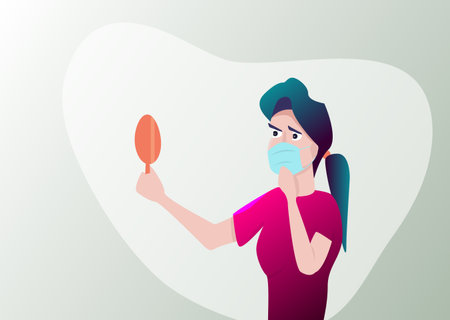Introduction to the NHS Vaccination Programme
The National Health Service (NHS) vaccination programme is a cornerstone of public health in the UK, designed to protect children from a range of serious and potentially life-threatening diseases. The schedule is carefully planned and regularly updated based on the latest medical evidence to ensure that children receive the best possible protection at every stage of their development. Vaccinations are provided free of charge on the NHS, reflecting their importance for both individual and community health. By immunising children at specific ages, the NHS not only reduces the risk of outbreaks but also helps to safeguard vulnerable individuals who may not be able to receive certain vaccines themselves. The overall aim is to build herd immunity within communities, minimising the spread of infectious diseases and ensuring a healthier future for all.
2. Key Vaccines and When Your Child Will Receive Them
The NHS vaccination schedule is carefully designed to protect children in the UK from serious illnesses at the right stages of their development. Immunisations are offered free of charge and are timed to provide maximum protection when children are most vulnerable. Here’s a clear summary of the core vaccines, the typical ages they’re given, and the diseases they guard against:
| Vaccine | Age Given | Disease(s) Protected Against |
|---|---|---|
| 6-in-1 vaccine (DTaP/IPV/Hib/HepB) | 8, 12, and 16 weeks | Diphtheria, Tetanus, Whooping Cough (Pertussis), Polio, Haemophilus influenzae type b (Hib), Hepatitis B |
| Pneumococcal (PCV) | 12 weeks, 1 year | Pneumococcal infections (e.g., pneumonia, meningitis) |
| Rotavirus oral vaccine | 8 and 12 weeks | Rotavirus gastroenteritis |
| MenB vaccine | 8 weeks, 16 weeks, 1 year | Meningococcal group B disease |
| MMR vaccine | 1 year, 3 years 4 months | Measles, Mumps, Rubella |
| Hib/MenC booster | 1 year | Haemophilus influenzae type b, Meningococcal group C disease |
| Flu nasal spray (annual) | From 2 years (annually) | Seasonal influenza (flu) |
The Importance of Timely Vaccination
The NHS schedule ensures your child receives protection before coming into contact with potentially harmful infections. Each vaccine is rigorously tested for safety and effectiveness, and delaying or missing doses can leave children at risk. If your child misses a vaccine appointment, speak to your GP surgery about catching up as soon as possible.

3. What to Expect on Vaccination Day
Attending your child’s vaccination appointment with the NHS can feel daunting, especially for new parents. This step-by-step guide will walk you through what typically happens at GP surgeries or clinics across the UK, helping you and your child feel confident and prepared.
Before the Appointment
- Check your appointment details: Make sure you know the time, location, and which vaccines your child is due to receive. Bring your child’s Red Book (Personal Child Health Record) with you.
- Prepare your child: For young children, bring a favourite toy or comforter. For older children, explain simply what will happen and reassure them it’s to keep them healthy.
At the Surgery or Clinic: Step-by-Step Process
| Step | What Happens |
|---|---|
| Arrival & Check-In | Report to reception. Staff may confirm your child’s details and vaccination schedule. |
| Waiting Area | You’ll be directed to a waiting area. Clinics aim to run on time but occasional delays can occur. |
| Nurse/Healthcare Professional Consultation | The nurse will call you in, check your child’s health, discuss any concerns, and review the vaccine(s) due. |
| Consent & Preparation | You’ll be asked for consent. The professional will explain possible side effects and answer questions. |
| Vaccination | Your child will receive the vaccine (usually as an injection). Distraction techniques are often used for comfort. |
| Observation (if required) | Some vaccines require a short wait after administration to monitor for any immediate reactions. |
After the Vaccination
- Your nurse will provide advice on caring for your child afterwards, what side effects to expect, and when to seek help if needed.
- Your child’s Red Book will be updated with vaccine details—keep this safe for future reference.
Top Tips for Parents
- Dress your child in clothes that make their arm or leg easy to access.
- Arrive a few minutes early to allow time for check-in.
- If you have concerns about allergies or previous reactions, let the healthcare professional know in advance.
A Friendly Word from the NHS Team
NHS staff are there to support you—no question is too small. If you are feeling anxious, let them know so they can offer extra reassurance for you and your child.
4. Frequently Asked Questions and Common Concerns
As a parent navigating the NHS vaccination programme, it’s natural to have questions and concerns about your child’s health and wellbeing. Below we answer some of the most common queries UK parents have regarding vaccines, covering topics such as safety, possible side effects, and steps to take if a vaccination appointment is missed.
Is the NHS vaccination programme safe?
Yes, all vaccines offered by the NHS are thoroughly tested for safety and effectiveness before being approved for use. The Medicines and Healthcare products Regulatory Agency (MHRA) closely monitors vaccine safety in the UK, ensuring that any risks are minimal compared to the benefits of immunisation. The NHS only recommends vaccines that have passed rigorous clinical trials and quality checks.
What are the common side effects of childhood vaccines?
Most children experience only mild side effects after vaccination. These typically include redness or swelling at the injection site, mild fever, or general irritability. Serious reactions are extremely rare. Here’s a summary:
| Vaccine | Common Side Effects | When to Seek Help |
|---|---|---|
| MMR | Mild rash, fever, swelling of glands | If high fever persists or severe allergic reaction occurs |
| DTP (6-in-1) | Soreness at injection site, mild fever | If breathing difficulties or persistent crying occur |
| MenB | Mild fever, tenderness at thigh | If unusual symptoms or very high fever develop |
What should I do if my child misses a vaccination?
If your child misses a scheduled vaccine appointment, there’s no need to worry. Contact your GP surgery or local health visitor to reschedule as soon as possible. The NHS has catch-up programmes to ensure your child remains protected. Vaccines can still be given even if they are delayed — it’s never too late to get up to date.
How effective are vaccines?
NHS vaccines provide high levels of protection against serious diseases such as measles, mumps, rubella, diphtheria, polio, and meningitis. Immunisation not only protects your child but also helps safeguard vulnerable members of your community through herd immunity.
Are vaccines compulsory in the UK?
No, childhood vaccinations are not legally required in the UK; however, they are strongly recommended by public health professionals due to their proven benefits. Choosing to vaccinate helps protect both your own child and others in society from preventable illnesses.
5. Accessing Support and Further Information
Navigating the NHS vaccination programme can sometimes feel overwhelming for parents. Fortunately, there are numerous trustworthy resources and support services available to help you make informed decisions about your child’s health. Below, we outline where you can access reliable information, who to contact for advice, and what local and national support is available across the UK.
NHS Resources for Parents
The NHS provides a wealth of information tailored for parents regarding childhood vaccinations. All official guidance is evidence-based and regularly updated. The most useful starting points include:
| Resource | Website/Contact | Description |
|---|---|---|
| NHS Vaccinations Guide | nhs.uk/conditions/vaccinations | Comprehensive guide to all NHS-recommended vaccines for children and adults, including schedules and safety information. |
| Personal Child Health Record (Red Book) | Given at birth or by your health visitor | Your child’s Red Book records all vaccinations received and future dates due; bring it to every appointment. |
| NHS 111 | Call 111 or visit 111.nhs.uk | 24/7 non-emergency medical helpline for immediate advice on vaccines or reactions. |
| GP Practice Nurse or Receptionist | Your local surgery contact details | Your first point of call for vaccine appointments, queries, or catching up on missed doses. |
| Public Health England (now UKHSA) | gov.uk/ukhsa | National guidance, research, and updates on immunisation policies in the UK. |
Who Can You Speak To?
- Health Visitor: Trained in child development and immunisations; can discuss concerns during routine checks or home visits.
- School Nurse: Supports vaccination programmes in schools and can answer questions about consent forms or schedules.
- Pharmacist: Many community pharmacies offer vaccine advice and some provide flu jabs for eligible children.
- Your GP: For clinical advice specific to your child’s medical history, allergies, or special circumstances.
Local Support Groups & Charities
If you are seeking peer support or have further questions about specific conditions (such as allergies or immunodeficiencies), many charities such as the Meningitis Research Foundation, National Autistic Society, and Asthma UK offer tailored information related to vaccines.
Top Tips for Parents in the UK:
- Always use NHS or government-endorsed websites for vaccine information.
- If unsure about anything, ask your healthcare provider before making decisions based on social media posts or unverified sources.
- You can request translated materials or accessible formats from your GP practice if English is not your first language.
- If your child misses a vaccine appointment, contact your GP surgery promptly to reschedule—catch-up schedules are always available.
The NHS is committed to supporting families throughout their child’s vaccination journey. By using these reputable resources and reaching out for support when needed, you can feel confident in protecting your child’s health now and in the future.

